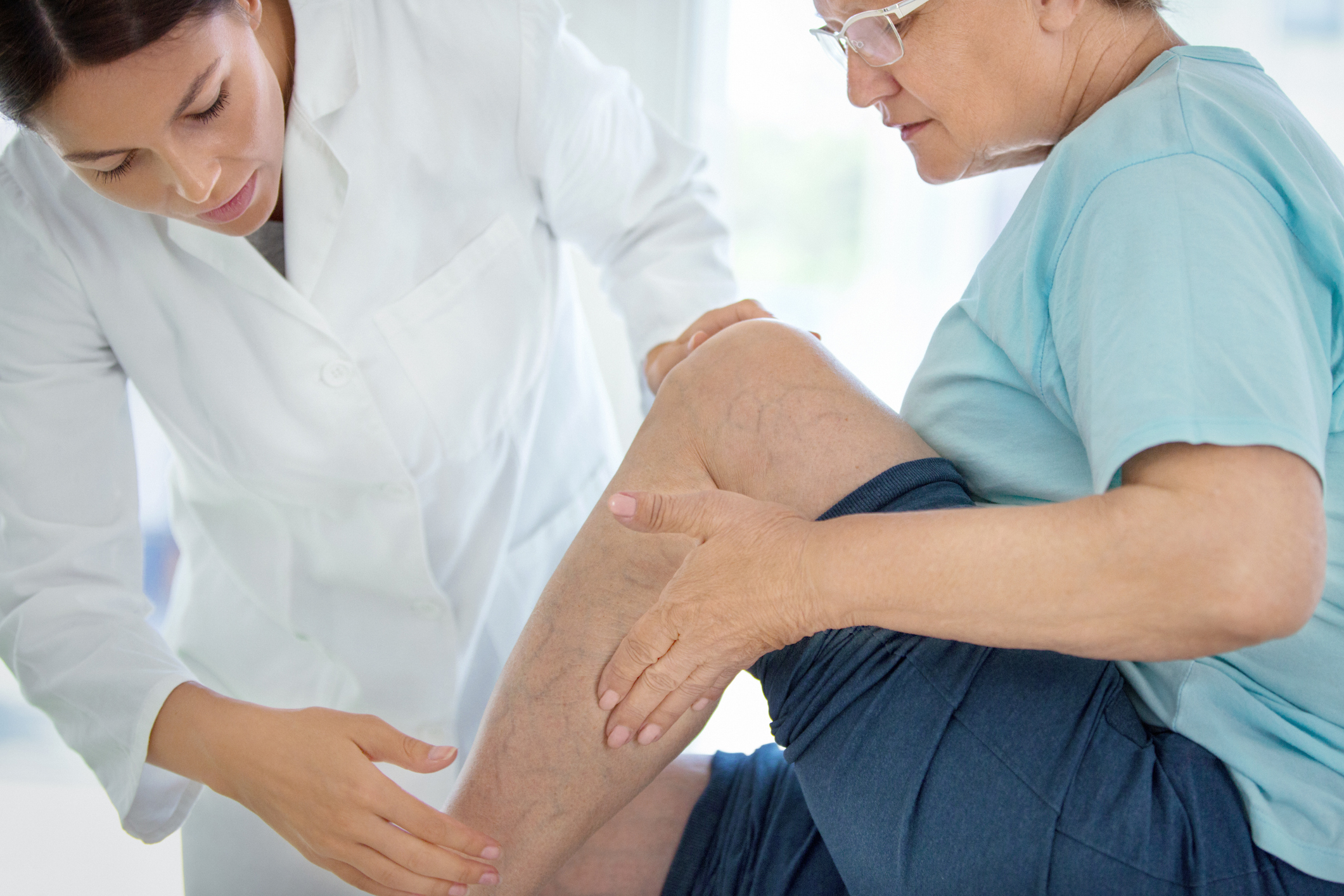Paul Maurice turned to Inspira Rehab Services for pain relief and mobility after an ankle injury. He...
Read More
Varicose veins are more than just a cosmetic concern—they can be uncomfortable or painful and may indicate underlying circulatory issues.
If you’ve noticed twisted, bulging veins in your legs or experienced aching and swelling, you’re not alone. Millions of people develop varicose veins, especially as they age.
The good news? There are effective treatments available to manage and even eliminate them. Learn what causes varicose veins, symptoms to watch for and how to treat or prevent them.
“Varicose veins are enlarged, twisted veins that most commonly appear on the legs,” said Andre Cole, D.O., a vascular surgeon at Inspira Surgical and Vascular Center in Vineland. “They develop when the valves in your veins weaken or become damaged, allowing blood to pool rather than flow efficiently back to the heart.” This blood pooling leads to increased pressure, bulging and vein discoloration. If left untreated, varicose veins can cause discomfort, swelling and, in severe cases, skin ulcers or blood clots.
It’s important to talk to your doctor if your varicose veins cause persistent pain, swelling or noticeable skin changes. “While varicose veins are often harmless, severe cases can lead to complications such as ulcers, blood clots or deep vein thrombosis (DVT),” said Dr. Cole. “A vascular specialist can help assess your condition and recommend the best treatment plan to maintain healthy circulation and prevent further issues.”
While they can affect anyone, varicose veins are more common in women. Genetics also play a significant role—if your parents or grandparents had varicose veins, you may be more likely to develop them. Age is another factor, as vein valves weaken over time, making it harder for blood to circulate properly. People who spend long hours on their feet or sitting at a desk without movement are also at a higher risk, as are those who are pregnant, carry excess weight or live a less active lifestyle.
Varicose veins are easy to recognize. They appear as dark blue or purple veins that twist and bulge beneath the skin, most commonly on the legs. While some people experience no discomfort, others may develop symptoms such as:
If your varicose veins cause discomfort or affect your quality of life, there are several ways to manage them. Lifestyle changes, such as regular exercise, maintaining a healthy weight and elevating your legs when resting, can help improve circulation and reduce symptoms. Wearing compression stockings is another simple, non-invasive option that provides gentle pressure to support blood flow.
Medical treatments are available for those experiencing persistent pain or cosmetic concerns. “Sclerotherapy is a common procedure in which a solution is injected into the affected vein to make it collapse and fade,” said Dr. Cole. “Other treatments, like radiofrequency ablation, use heat energy to close off problematic veins.”
More severe cases may require surgical options like vein stripping and ligation. Talk to a vascular specialist to determine the most effective treatment based on your needs.
There are steps you can take to prevent your varicose veins from worsening. Moving regularly and avoiding long periods of sitting or standing without breaks can significantly improve circulation. Incorporating physical activity into your routine, such as walking, swimming or yoga, supports overall vein health. Keeping your legs elevated when possible and maintaining a balanced diet rich in fiber while limiting salt intake can also make a difference. For people at high risk, wearing compression stockings can provide additional support.
Varicose veins can be more than a cosmetic issue—they can affect your health and quality of life. Understanding their causes, recognizing symptoms early and exploring treatment options can help you manage or prevent them.
Talk to a vascular specialist if you experience vein discomfort or are concerned about your vein health. With the right approach, you can take steps toward healthier, pain-free legs.

Paul Maurice turned to Inspira Rehab Services for pain relief and mobility after an ankle injury. He...
Read More
Blood clots can happen to anyone, even elite athletes. Here’s what to know about how blood clots...
Read More